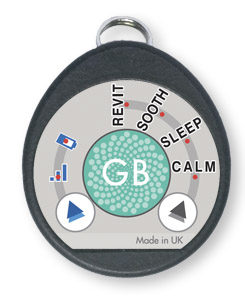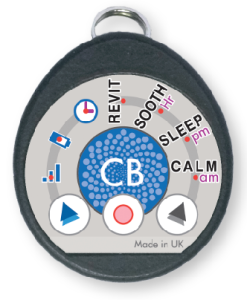Anxiety is a feeling of intense worry or distress in the absence of obvious danger. It is a state of inner turmoil accompanied by churning thoughts, nervousness, poor concentration, feelings of dread and loss of control. It is related to, but different from, fear, which is a response to a real or perceived immediate threat.
Anxiety comes in two main forms:
- A short-term state, a response to a challenging situation, which can be acute.
- A long-term, chronic condition, part of one’s psychological makeup. An anxiety disorder such as this can have a profound effect on our quality of life.
Types of anxiety
There are six major types of anxiety disorders:
- If constant worries and fears distract you from your day-to-day activities you may be suffering from generalised anxiety disorder. Sufferers feel anxious nearly all of the time without necessarily knowing why. Generalized anxiety disorder often shows up as physical symptoms like insomnia, indigestion and fatigue.
- Obsessive Compulsive Disorders are characterized by unwanted thoughts or behaviours that seem impossible to control, such as a recurring worry that you forgot to lock the house before going out or left the oven on. Sufferers may also have uncontrollable compulsions, such as repeatedly washing their hands.
- Anxiety attacks, characterized by recurrent, unexpected panic feeligs which may also be accompanied by a fear of being in places where escape or help would be difficult such as open spaces like shopping centres or confined spaces such as lifts and underground trains.
- Phobias are unrealistic or exaggerated fears of specific objects, activities or situations that in reality present little or no threat. Common phobias include fear of animals, birds and spiders, fear of flying and fear of heights. Sufferers go to extreme lengths to avoid the feared object or situation which unfortunately only strengthens the phobia.
- Social anxiety disorder is a debilitating fear of being seen negatively by others. It includes extreme shyness and stage fright. In severe cases, social situations are avoided altogether which can exacerbate the problem.
- Post-traumatic stress disorder is an extreme anxiety disorder that can occur after a traumatic or life-threatening event. Symptoms include flashbacks or nightmares, withdrawing from others, startling easily, and avoiding situations that remind us of the event.
Anxiety disorders are partly genetic, but also due to mental disorders such as bipolar condition, depression and certain personality disorders. Drug use and withdrawal from certain drugs can also cause anxiety.
Physical symptoms of anxiety disorders
Anxiety is a result of the body’s natural response to danger, the fight-or-flight response to perceived threats. It can cause a wide range of physical symptoms, hence anxiety sufferers often mistake their disorder for a medical illness before their anxiety disorder is discovered. Common physical symptoms of anxiety include:
- Breathing problems
- Digestive problems
- Dizziness
- Fatigue
- Frequent urination
- Headaches
- Racing heart
- Insomnia
- Muscle tension
- Palpitations
- Sweating
- Tremors and tics
Mental symptoms of anxiety disorders
- Constantly tense, fearful, worried or jittery.
- Avoidance of situations and activities because they cause anxiety.
- Recurring irrational fears that won’t go away.
- Compulsive behaviours.
- Feelings that danger and disaster are imminent.
- A need to do things in a certain way or order.
- Recurring thoughts that interfere with daily activities such as work or family life.
- Mental vagueness/blank mind.
Emotional symptoms of anxiety disorders
- Anticipating the worst.
- Poor concentration.
- Constant feelings of apprehension or dread.
- Shyness and social awkwardness.
- Self doubt.
Remedies for Excessive Anxiety
There is no universal cure for anxiety. Sometimes it can be relieved with medication, therapy or a combination of the two, but it is doubtful that either permanently removes the root cause.
Practical lifestyle changes
- Whenever you find yourself worrying about something, write it on a piece of paper and put it in a ‘worry box’. On the last day of each month, open the box. You will find that most of your worries never happened and many were not as bad as you imagined.
- Keep active. When you’re busy, your mind has less opportunity to focus on your worries. Often whatever is worrying you resolves itself while your attention is on other things.
- Deep relaxation has enormous benefits. Use relaxation time to ‘visualize’ yourself coping with anxiety-inducing situations. Mindfulness, thought stopping, relaxation and mental calmness can help break the anxiety cycle.
- Take regular exercise. Exercise is a great antidote to anxiety especially if taken in a natural setting. Spend at least twenty minutes per session.
- Slow, deep breathing – focus your attention on your breath and take at least ten slow, long, rhythmic breaths whenever you feel anxiety coming on.
- Eat well. Choose a healthy diet and keep your blood sugar levels up. And never avoid breakfast.
- Daily meditation (minimum morning and evening sessions of twenty minutes each) had enormous benefits for anxiety disorders.
- Live one day at a time. Concentrate on what you can do If you’re clear about your long-term goals and do the best you can each day, the future will take care of itself.
Natural remedies
- Omega 3 oils (mainly found in nut and seed oils, fish oils and eggs) are extremely beneficial for anxiety.
- So are ingested herbs such as chamomile, green tea, hops, valerian, lemon balm and passionflower, and the calming scent of lavender.
- There are various over-the-counter products which usually contain a combination of the above and claim to relieve worry, stress and irritability and help to promote natural sleep. For further information visit your pharmacy or health food store.
Medication
The National Institute for Clinical Excellence in the UK has recently advised doctors to consider counselling before prescribing drugs for anxiety sufferers. Only one in three find relief from their symptoms through drugs.
There are a wide range of anti-anxiety prescription drugs, including benzodiazepines, Selective Serotonin Reuptake Inhibitors (SSRI’s), Selective Norepinephrine Reuptake Inhibitors (SNRI’s) and Monoamine Oxidase Inhibitors (MOI’s).
Beta blockers, used for the treatment of high blood pressure and a racing heart, can be effective for short term anxiety, for instance if you were anxious over a driving test or examination.
Although these normally take several weeks to ‘kick in’, doctors are reluctant to prescribe medication for more than a few weeks as users can become addicted. They also have side effects ranging from drowsiness, dry mouth, blurred vision and memory problems to sexual dysfunction, weight gain, gastric upset, disrupted sleep and nightmares. Also, abruptly stopping the medication can cause withdrawal symptoms, such as nausea, sweating and shaking. If in doubt, always consult a doctor.
Psychotherapy
Drug companies spend huge sums trying to convince us that depression and anxiety are biological illnesses and can only effectively be treated with drugs, but independent research often shows that psychotherapy can relieve symptoms more quickly and is more likely to prevent a relapse.
Among the approaches used are:
Behavioural therapy
This uses two main approaches:
- Desensitization – exposing the client to progressively more stressful events. In theory the anxiety subsides.
- The ‘extinction’ technique – based on the notion that if you put the client in anxiety provoking situations often enough, they eventually learn that there’s nothing to be worried about. Sadly it only works 25-30% of the time.
CBT
The most common form of psychotherapy is Cognitive Behavioural Therapy (CBT). CBT assumes that changing maladaptive thinking leads to changes in feelings and behaviour. CBT has been shown to be at least as effective as drugs for the treatment of anxiety.
Hypnosis
Hypnosis can be used to expose unconscious causes of anxiety and reprogram the subconscious to make you more relaxed and less anxious. It can also address specific fears and phobias. Neuro-Linguistic Programming (NLP) can also address anxiety disorders and phobias.
Psychoanalysis
Psychoanalysis can involve years of analysing childhood experiences and has a poor track record of relieving anxiety.
Self-help
We all know that worrying about a problem never solved it, but consciously trying to control anxiety or panic through rational thought alone can make matters worse. What we focus on tends to amplify, so trying to think our way out of anxiety can lead to more anxiety provoking thoughts, which only increase the symptoms.
Electronic Bioenergetic Devices
Various electronic devices have been developed in the past half century which use low frequency, short duration, low intensity magnetic pulses to stimulate body tissues. TENS devices (Transcutaneous Electrical Nerve Stimulation), for instance, use electric currents to stimulate the nerves for therapeutic purposes. The Scenar – ‘Self-Controlled Energy Neuro Adaptive Regulation,’ originally developed for the Russian space programme, is a hand held biofeedback device which aims to teach the body to heal itself by activating the immune system. While TENS and Scenar have proved effective for pain relief in clinical studies and avoid the problems associated with drugs, it is doubtful that either can help with anxiety.
The most advanced device on the market is the AcuPearl. AcuPearl has been developed by an international team of scientists whose expertise extends from traditional healing methods to the latest research in the body’s connective tissue matrix communication.
AcuPearl comes in various configurations, two of which, the AcuPearl G-Balance and C-Balance, are is specifically designed to aid with stress, anxiety and sleep patterns.
AcuPearls delivers therapeutic effects in a safe way using (1) Low frequency pulsed output of the magnetic and light spectrums; the rate and duration of the pulses is an important factor in the AcuPearl technology; (2) Pulsed ElectroMagnetic Field therapy (pemf) which uses low frequency, short duration, low intensity magnetic pulses to stimulate body tissues; and (3) A propriety method called Adaptive Resonance, developed specifically for AcuPearl, which produces resonant interference patterns within the magnetic and light fields that are continually adapted as the device is in use.
The Calm/Relax setting works with acute and chronic stress and anxiety, offering a general calming and relaxing effect; the Revitalise program aims to help re-establish a sense of vitality when feeling depleted as a result of prolonged emotional stress and the Sleep setting help to re-establish good sleep patterns for people experiencing sleep disorders due to emotional stress and anxiety.
These AcuPearls can be worn as pendants or on the wrist, or simply kept in a pocket. Their effect can be enhanced by applying them to acupuncture points, making them the 21st Century equivalent of a 5,000 year old proven therapy.
Scientific advance is an ever unfolding process, and although there’s still an awful lot to discover, there are more and more options for anxiety sufferers. Perhaps the best approach in chronic cases is a multi-faceted approach incorporating natural remedies, lifestyle changes, talking therapies and pemf.
See also www.feelinggoodallthetime.com/anxiety
© David Lawrence Preston, 17.6.2016
Follow me on Facebook and Twitter
Nothing in this article is intended as a substitute for professional medical advice. Always consult a doctor if you have any health concerns that may require diagnosis or treatment. Any statements made concerning products and services represent the opinion of the author alone and do not constitute an endorsement of any product or service.



Leave a Reply